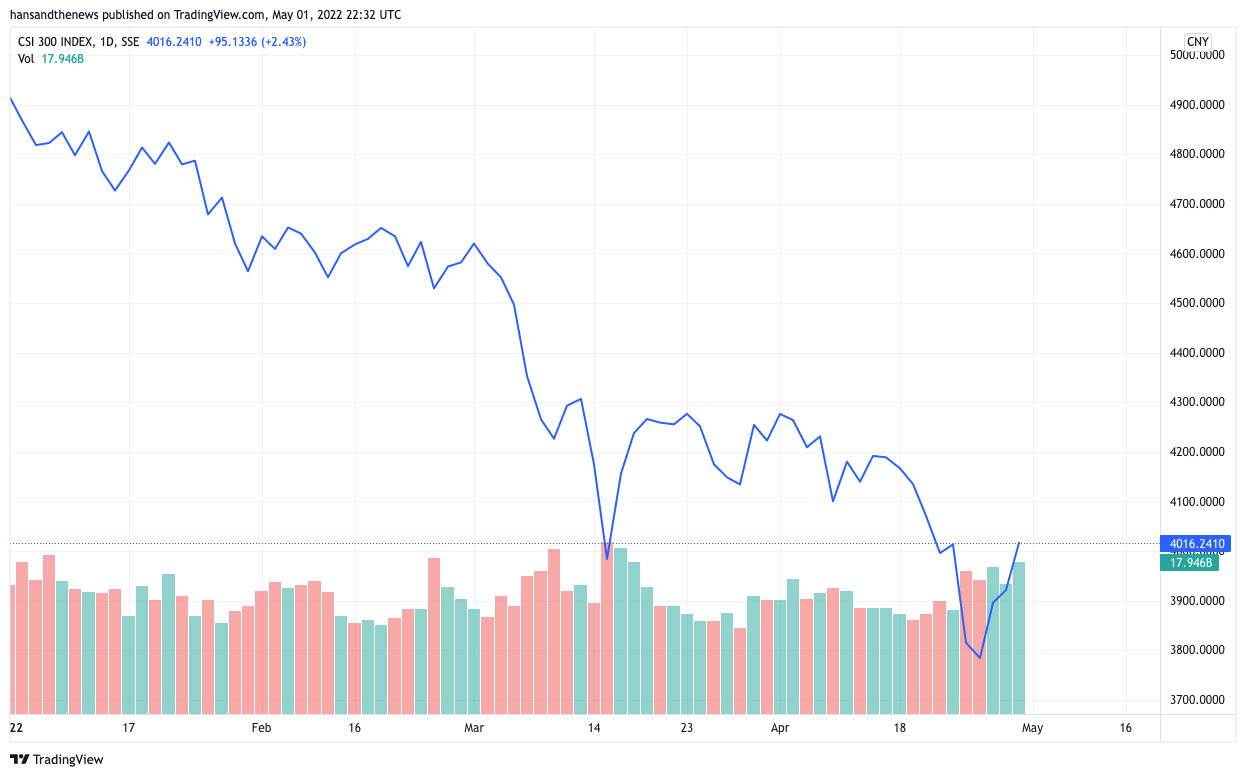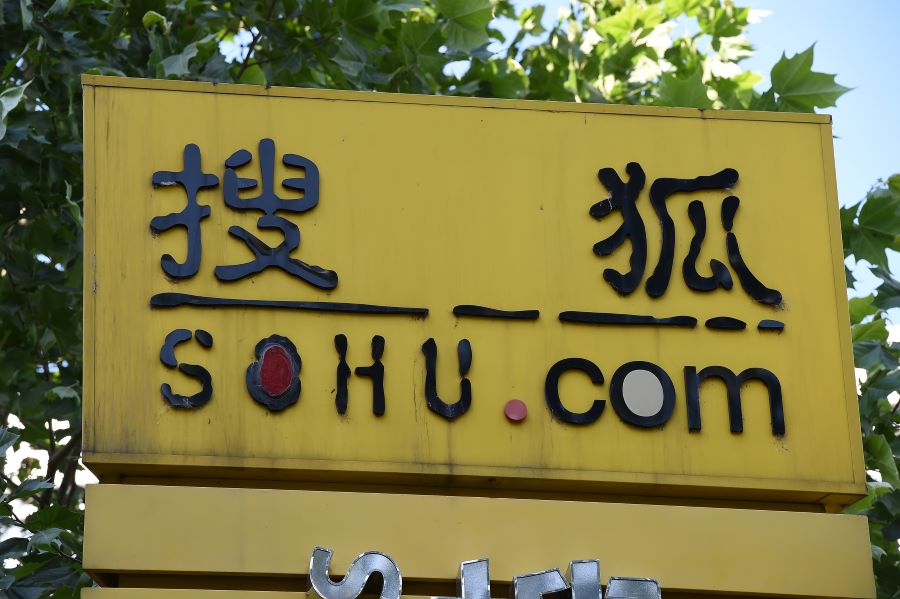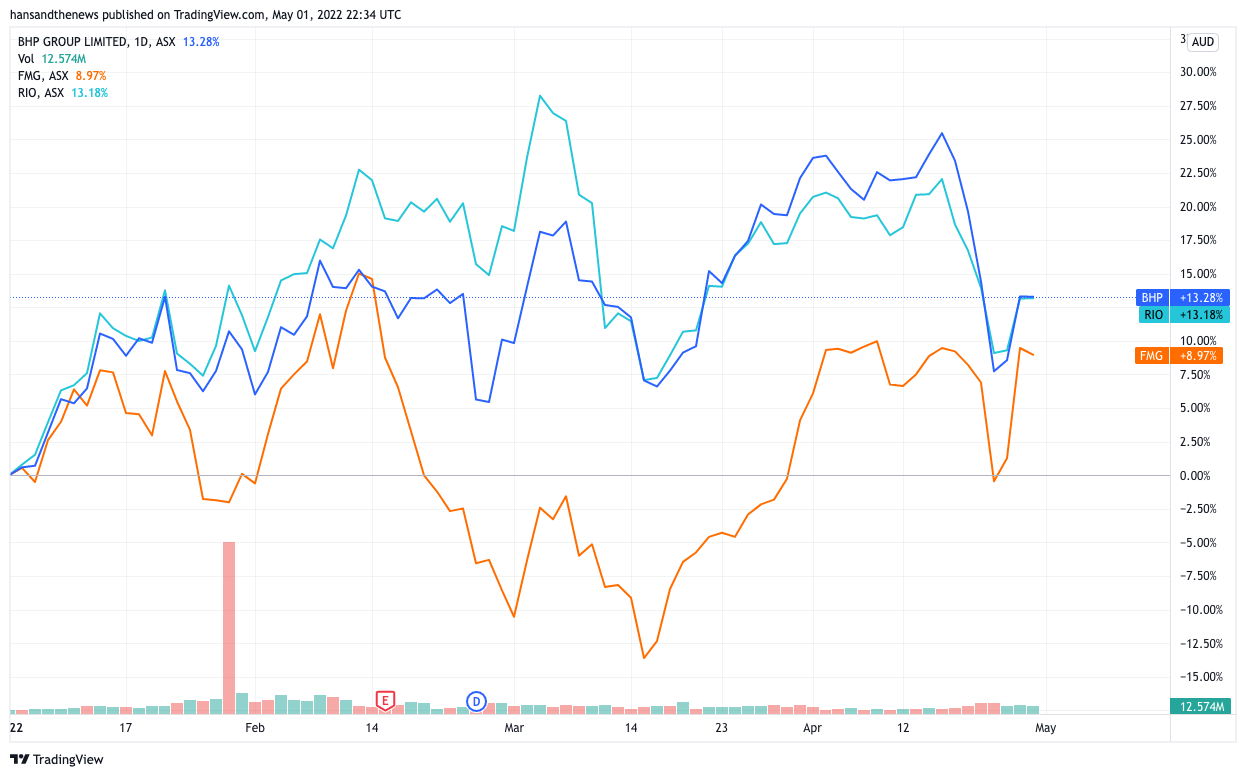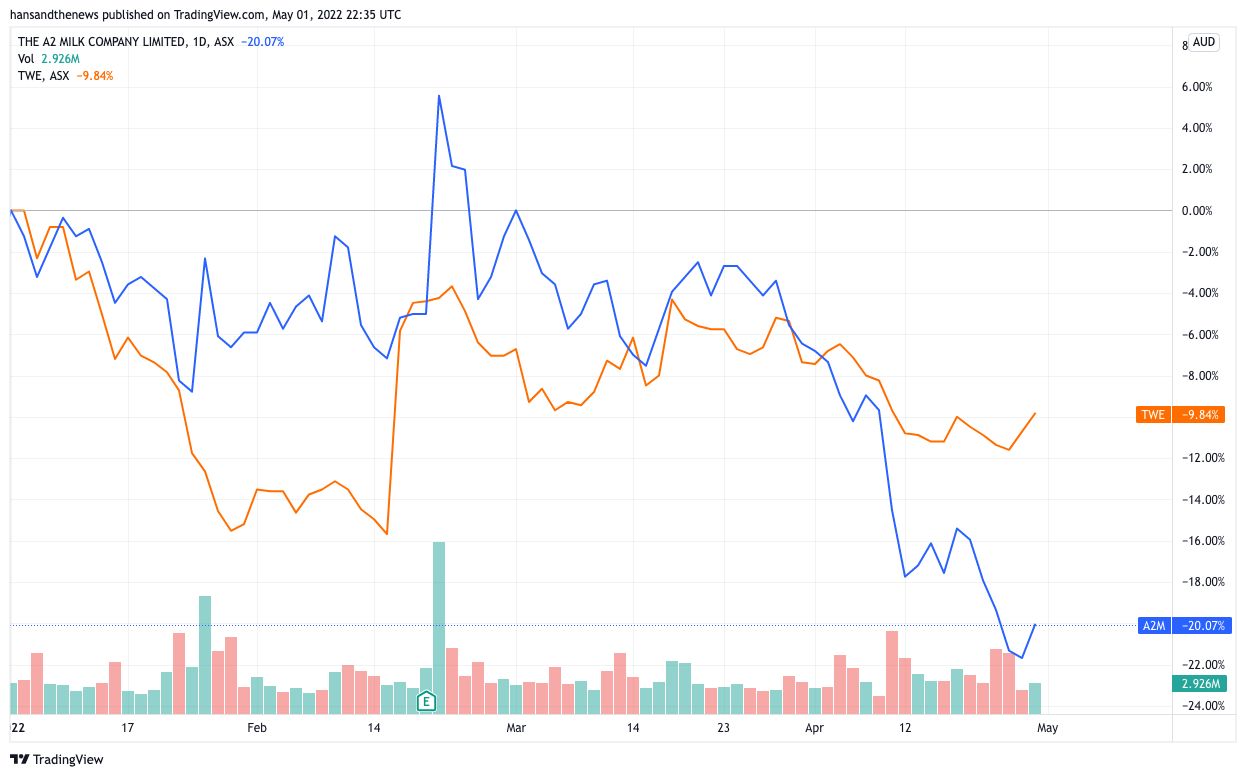Russia is uninvestable, China is not: JP Morgan Asset Management
Uninvestable is a brutal description usually reserved for extreme situations – such as the barring of foreign inflows into the Russian stock market. Other investors use that term for Chinese assets given all the regulatory headwinds, the emerging COVID-19 situation, and tight controls on what can be said about the country's price action.

Not so Kerry Craig of JP Morgan Asset Management. Kerry argues that the term is unjustified in the context of the Chinese economy – both in projections for growth and company earnings potential.
"If you hold that view, you're gonna miss out on some particular routes and potentially strong returns," Kerry says.
Addressing zero COVID
The last decade has revealed all about China's economic strategy – tighten when the world is loosening and loosen when the world is tightening.
In 2008, the country unleashed trillions in infrastructure spending as well as a litany of government bonds. Then-new regulations for the Chinese banking industry meant it also had sufficient capital to enlarge its credit supply and in turn, allow it to withstand the impact of this crisis.
This time is very different, however. The coronavirus (and the policy calling for its complete stamp out) is not exogenous nor a result of regulatory complacency.
"It's a shock to the domestic economy. And they can't really spend a lot of money when they're trying to deliver the economy," Kerry says.
.jpg)
The infrastructure cash splash is still there as is the government bond issuance from 2008. But those long-awaited reserve ratio cuts from the Chinese central bank have not come through as expected.
So what is the reason for this cut back in Beijing's "whatever it takes" approach?
"It's not just COVID. It's more a multitude of the factors of response to the shifts in the way the economy is being operated in the political environment as well," Kerry says.
"It could be a case that a one-year painful experiment is going to be much better for the next 10 years of the country."
Think (very) long
Kerry says China is a game of patience. If you want to invest in the tiger economy, he thinks your time horizon should be at least three years, not just the 12 months we might be used to in Western investing.
"If I'm looking for genuine growth in my portfolio, around the world, a lot of assets and valuations in the US or Australia, that cheap relative to history. That's where I get the growth and the pickup in my portfolio is thinking about EMs is about China," Kerry says.
However, Kerry's comments do come with a key caveat – be prepared to stomach a lot of ups and downs over the journey.
"It is a more volatile market and so if you look at how it has performed, usually the market drops quite significantly and bounces back quite significantly pretty quickly as well," Kerry notes.
His words are backed up by the numbers. The Shanghai-based CSI 300 is down 20% year to date but is up nearly 16% over the last five years.

The technology tit-for-tat
It's no secret that Beijing and Washington have been in a technology tit-for-tat for the last few years. Both countries have been in a war of words and pens in a bid to acquire advantages in a set of key technologies such as artificial intelligence, 5G, cloud and quantum computing, cybersecurity, and semiconductor chip manufacturing.
China is aiming to win this war through manufacturing and expenditure while the US has been using antitrust and sanctions to fight off any influence the Chinese government could have on American soil.

Recently, internet portal Sohu had to seek a delisting from the Nasdaq after being named by US regulator as non-compliant with audit rules.
This was no one-off situation – Sohu is the 23rd Chinese firm to get a non-compliance ruling from the SEC.
On the country's legal hurdles, Kerry thinks we've seen the peak in regulatory announcements.
"You're really going to see that shift away from announcement implementation, and that will bring more clarity. On that basis, you'll be able to assess what the earnings outlook is going to be in the future and how much you're willing to pay for those earnings," Kerry says.
So does that make internet stocks like Alibaba, Baidu and Weibo finally investable after a torrid 18 months? Kerry argues you need to at least invest in line with the policy.
"You want to align with the policies that have been put in place those policies around technology and semiconductor independence or self dependence," Kerry says - adding consumer enterprise technology areas could also be in for a good future.
Other opportunities in China
Rolling with Beijing's punches is a key part of JP Morgan Asset Management's thesis for investing in China. We've already touched on China's ongoing need to become self-sufficient, especially around internet and semiconductor technologies. However, Kerry and his team are also noticing a big shift in consumer demand patterns.
"Those naturally lean into the consumer enterprise technology areas and not necessarily just in state names," Kerry says.
Australian assets with Chinese exposure
Finally, given we are the most exposed G10 economy to the country's gyrations, are there opportunities that can be made in our own backyard?
Hindsight is 20/20 and in names like the Big Three iron ore miners, the demand from China continues to be warranted and relentless.

For others, like A2 Milk or Treasury Wine Estates, the investor reaction has been far more muted.

"If you do see more trucks speeding and more demand and you see steel production increase. And then obviously you're going to need more coal and iron ore from Australia, which they quite frankly, can't get from other places," Kerry says – though he did also tell me that he wouldn't buy other Chinese exposed names for the very reason that tariffs can crop up at any time on a range of consumer staple and discretionary names.
Never miss an insight
If you're not an existing Livewire subscriber you can sign up to get free access to investment ideas and strategies from Australia's leading investors.
I'll be in charge of asking the questions to Australia's best macro strategists, economists, and fixed income fund managers. If you have questions of your own or guests we should chat to, flick us an email: content@livewiremarkets.com
4 topics
1 contributor mentioned

